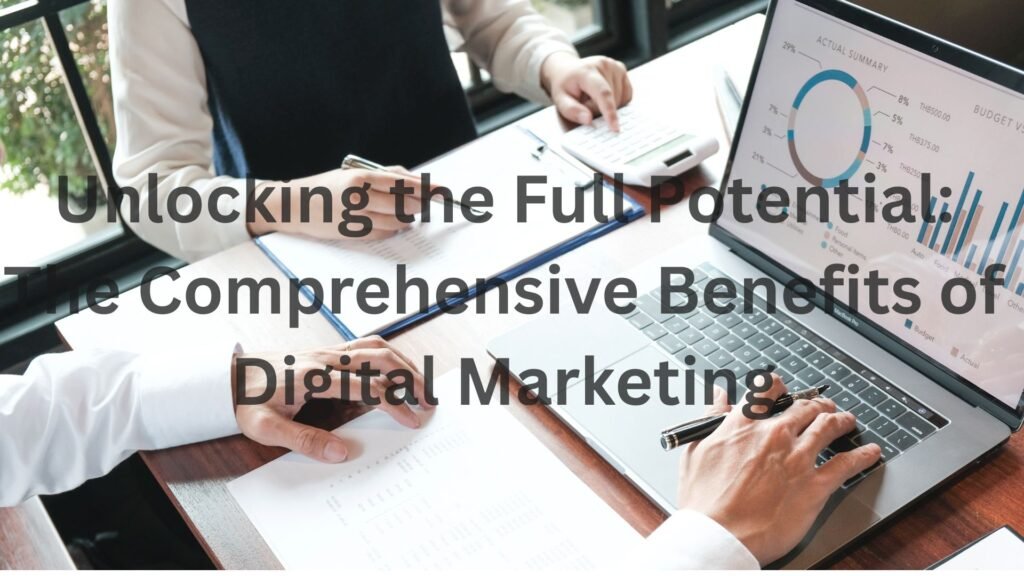
In a world where nearly every aspect of life has shifted online, the rise of digital marketing is not just inevitable—it’s transformative. Businesses across the globe are embracing digital tools and platforms not only to survive but to thrive in highly competitive markets. Unlike traditional marketing, which often comes with significant cost and limited measurability, the benefits of digital marketing include a more versatile, cost-effective, and data-rich environment. Whether you’re running a multinational enterprise or a small local business, digital marketing offers unparalleled advantages that traditional methods cannot match.
As technology continues to evolve and consumer behavior adapts to a digital-first world, recognizing and leveraging the benefits of digital marketing is no longer optional—it is essential. From measurable results and targeted communication to global outreach and real-time customer engagement, digital marketing offers businesses the tools to grow strategically and sustainably. This article delves into the extensive benefits of digital marketing and how it is reshaping the way brands interact with customers and the world around them.
Global Reach and Market Expansion

The ability to reach a worldwide audience is one of the most profound benefits of digital marketing. Traditional marketing campaigns are often restricted by geography and budget, but digital platforms erase those boundaries almost entirely. Businesses in Dubai can sell to customers in New York, London, or Sydney within seconds through their websites, social media channels, or email campaigns.
This global accessibility—another key benefit of digital marketing—enables companies to test new markets, launch international campaigns, and build a global customer base with relatively low investment. Furthermore, with geo-targeting and language-specific content strategies, brands can tailor their messaging to suit cultural nuances in different parts of the world.
Cost-Effective Strategy for All Business Sizes

One of the most attractive benefits of digital marketing is its affordability. For businesses with limited budgets, digital platforms offer scalable marketing opportunities. Social media advertising, search engine marketing, and email campaigns can all be launched with minimal financial commitment and adjusted based on performance.
Compared to the cost of a full-page newspaper ad or a prime-time television spot, digital campaigns allow for precise budgeting. Whether you’re investing $100 or $10,000, the benefits of digital marketing ensure that your money is spent wisely, targeting the right audience with measurable results.
Moreover, the ability to pause or modify campaigns in real-time prevents unnecessary spending. This flexibility helps businesses stay agile and adapt their marketing strategies as market conditions change.
Precise Audience Targeting and Personalization

Another major advantage of digital marketing is its ability to target audiences with precision. Traditional methods broadcast messages to the masses, hoping the right people see them. One of the key benefits of digital marketing is that it allows you to define your ideal customer based on demographics, interests, online behavior, purchase history, and more.
Platforms like Google Ads, Facebook, LinkedIn, and Instagram enable marketers to segment audiences into micro-groups and deliver personalized messages tailored to their specific needs and preferences. This leads to higher engagement rates and more efficient conversions because users receive content that resonates with them on a personal level.
Beyond targeting, another important benefit of digital marketing is its strength in creating personalized customer experiences. From personalized email greetings and product recommendations to customized website landing pages, customers feel more valued and connected to brands that speak directly to their needs.
Measurable Performance and Data Analytics
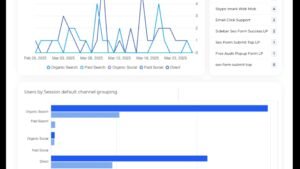
Real-time performance tracking and measurement is one of the most innovative features of digital marketing. It’s challenging to determine how many people saw your billboard or read your newspaper ad while using traditional marketing methods. Digital marketing platforms, on the other hand, provide detailed information about each user engagement, including clicks, page views, email openings, conversion rates, and more.
Marketers may make well-informed judgments, determine what works, and eliminate what doesn’t thanks to this abundance of data. Dashboards that analyze user behavior, engagement trends, and campaign performance are offered by platforms such as Google Analytics, SEMrush, HubSpot, and Facebook Insights.
These data-driven insights enable companies to continuously enhance user experience, optimize content, and fine-tune targeting. This eventually results in more effective campaigns and higher returns on marketing expenditures.
Enhanced Customer Engagement and Brand Loyalty

In the digital realm, communication between businesses and customers is no longer one-sided. Digital marketing fosters real-time, two-way interactions that build stronger relationships and brand trust. Through social media posts, comments, live chat, and direct messages, customers can engage with brands instantly and expect timely responses.
This level of accessibility builds emotional connections. When a brand responds quickly and personally to customer inquiries or feedback, it shows attentiveness and care. Such interactions foster customer loyalty and turn satisfied users into vocal brand advocates.
Furthermore, interactive content such as polls, quizzes, stories, and live sessions encourages participation and deepens engagement. Brands that invest in engaging content often experience higher retention rates and more referrals.
Search Engine Optimization (SEO) and Content Visibility
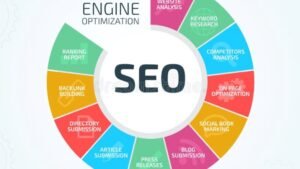
Search engine optimization plays a vital role in the success of any digital marketing strategy. It enhances a business’s online visibility by ensuring that content ranks well in search engine results, attracting users who are actively looking for related products, services, or information.
In contrast to paid advertising—which disappears once the budget runs out—SEO offers lasting benefits. A properly optimized website or blog can continue to draw organic traffic long after it has been published. Achieving strong SEO performance typically involves thorough keyword research, producing valuable and relevant content, building credible backlinks, and refining on-page elements for better search engine indexing.
SEO and content marketing go hand in hand. In addition to educating your audience, blog posts, videos, infographics, and guides establish your company as an authority in its industry. High-quality content improves your rating in search engine results pages (SERPs), lengthens dwell times, and lowers bounce rates.
Mobile Marketing and Multichannel Accessibility
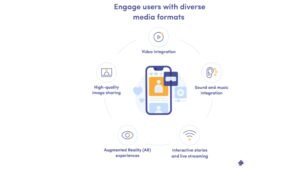
With the majority of online interactions now happening via smartphones, mobile marketing has become an indispensable part of digital marketing. Mobile optimization ensures that websites load quickly, emails are responsive, and advertisements appear seamlessly on mobile devices.
Push notifications, SMS marketing, and app-based advertising allow brands to reach consumers in the most personal digital space—their mobile phone. Additionally, a multichannel approach, where businesses use social media, email, search, and mobile simultaneously, provides multiple touchpoints and ensures consistent brand visibility.
Whether your customer prefers Instagram, YouTube, or WhatsApp, digital marketing allows you to reach them through the channels they use most frequently.
Automation and Marketing Efficiency
The way firms approach digital marketing has changed as a result of automation solutions—one of the key benefits of digital marketing. Marketers can set up workflows that automatically send emails, schedule social media posts, or trigger personalized content depending on user activities using platforms like HubSpot, Active Campaign, and Mailchimp.
Time is saved, less manual labor is required, and consistent communication is guaranteed thanks to this automation. When a consumer registers on a website, for instance, they can get a welcome email right away, followed by a series of offers, testimonials, and product introductions—all without the need for human participation.
Among the many benefits of digital marketing, automation stands out for enhancing operational efficiency, improving user experience, and delivering prompt, consistent communication that ultimately raises conversion rates.
Improved Conversion Rates and Lead Generation
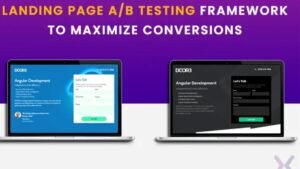
Ultimately, the success of any marketing strategy is measured by its ability to convert interest into action. Digital marketing excels in this area through landing pages, lead magnets, email follow-ups, remarketing, and dynamic calls-to-action.
Tools like A/B testing help marketers identify which version of a webpage or ad performs better, allowing continuous improvement. When combined with good UX design and compelling copy, these tactics contribute to higher conversion rates and a steady stream of qualified leads.
Building Trust Through Transparency and Reviews
Consumers today are more informed and cautious. Before purchasing, they read reviews, research brands, and seek recommendations. One of the key benefits of digital marketing is that it helps build transparency by allowing customers to share feedback and interact openly with the brand.
Online reviews, testimonials, case studies, and user-generated content (UGC) create social proof—another powerful benefit of digital marketing. When potential customers see positive experiences from others, they are more likely to trust and choose your business. Actively managing your brand’s online reputation becomes a key part of the digital strategy.
Real-Time Adaptability and Competitive Advantage
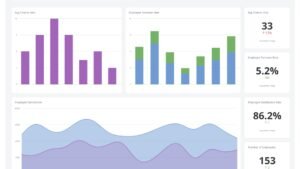
In an ever-changing market, the ability to adapt quickly is crucial. Digital marketing allows real-time tweaks to ad copy, budget, targeting, or scheduling—making it possible to respond to trends, customer behavior, or performance insights immediately.
This agility gives businesses a competitive edge. While others are still finalizing next month’s billboard ad, your digital team can launch a timely campaign in a matter of hours. Being responsive to customer needs, seasonal changes, or viral trends allows brands to stay relevant and proactive.
Conclusion: The Future Is Digital and the Benefits Are Endless
Digital marketing is no longer a marketing trend—it is the very backbone of modern business communication. It offers a blend of creativity, data, technology, and psychology to help brands build connections, grow visibility, and deliver measurable outcomes. From cost savings and global reach to real-time analytics and customer loyalty, the benefits of digital marketing are both immediate and long-lasting.
As consumer preferences evolve and digital ecosystems expand, the potential and benefits of digital marketing will continue to grow. Businesses that invest in a strategic, adaptable, and customer-centric digital approach will not only survive the competitive landscape—they will lead it. The digital world rewards those who are not only present but persistent, proactive, and passionate about delivering value where it matters most.
Author: Rafan Rafeeq

